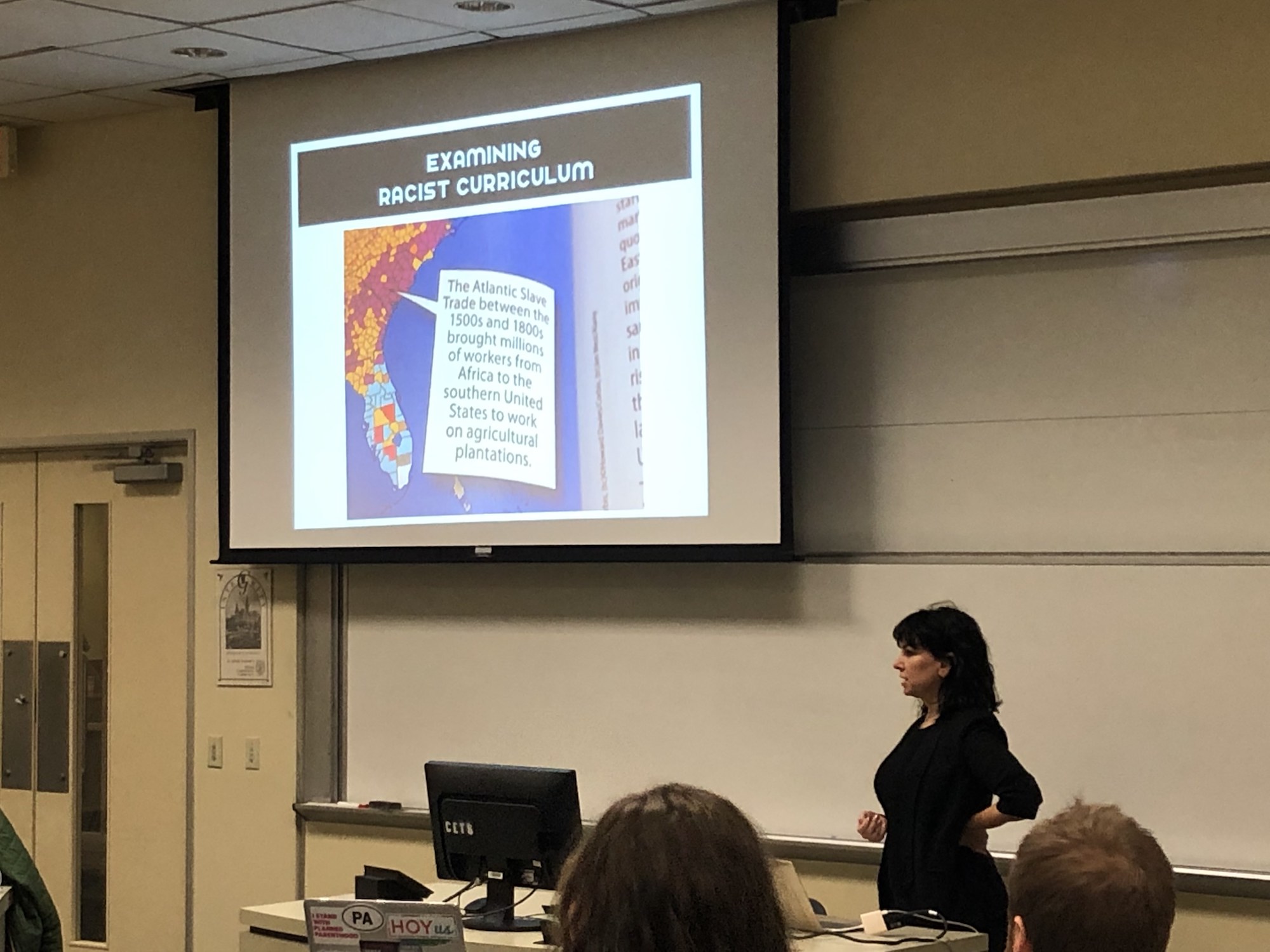Dr. Bree Picower and Dr. Paul Gorski led a discussion on curriculum inequities and social justice based curriculum as part of a larger series on “Excellence and Identity in Education.”, The event was sponsored by the Program in Educational Transformation, a 12 month experiential education masters program. The discussion was presented on Jan. 25 to a mix of undergraduate and graduate students, along with education professionals.
Picower is an author and associate professor at Montclair University, while Gorski is a former associate professor at George Mason University and founder of EdChange, an organization to promote equity literacy in education.
Picower examined the current state of U.S. curriculum in her talk. She drew upon examples, such as an assignment that asked elementary school students to give three good reasons and three bad reasons for slavery. Another assignment she cited was one that required students to create wanted posters featuring slaves as the subject. Picower condemned these approaches.
“When we are asking students, and students of color, to create these, we are asking them to identify with white oppressors,” Picower said.
Picower explained the psychological violence inflicted among students of color who are forced into the role of rebuking their teachers’ racist curriculum.
“We love when students have the opportunity to speak back to this. But the point is, it’s not black children’s responsibility to be the black Twitter of curriculum. That’s teachers’ jobs and that’s teacher education’s job. It’s not children’s job to be sure they are not getting this kind of curriculum put in front of them,” she said.
Picower finished up her lecture with a call for teachers to not only produce a multicultural curriculum, but a social justice curriculum that includes an analysis of the power structures behind racism.
Gorski explained his work with EdChange. In his current role, Gorski serves as an advisor to school districts pursuing equity based reforms. Gorski reflected on the challenges he observes in this role and his regret over the rise of “shiny new initiatives” in education reform.
“I have yet to work with one school whose primary strategy for eliminating inequities is actually eliminating the inequities,” Gorski said.
Gorski urged educators to handle equity issues without prioritizing the comfort of white students. He criticized common exercises, such as privilege walks that ask students to step forward each time they agree with a statement like “I am a white male”.
“This is a classic example of using students of color as props for very gentle diversity learning for white students,” Gorski said.
Gorski also called on teachers to avoid taking the role of a neutral moderator in classroom discussions as it risks the retraumatization of the class’s marginalized students.
“Most teachers don’t teach [inequity] the way they would teach biology where if someone made a factually incorrect statement they would not just let that statement lay out there,” Gorski said. “Teachers have to actually be trained to advocate, to stand on the side of students of color during these conversations, and not just try to be some objective facilitator.”
DC Reads coordinator Zainab Mahdi (SFS ‘21) intends to implement Picower and Gorski’s teachings into the training of DC Reads’ tutors.“It’s just creating this mindset that’s open minded, that’s willing to have respect, but also be willing to learn, and give these children the autonomy so that they get to speak their minds,” she said.
The next segment in the series will take place on Feb. 22 and will feature a discussion on serving undocumented and Muslim students with Tatyana Kleyn, a bilingual education professor, and Susann Douglas, education outreach coordinator for the Center for Contemporary Arab Studies.





